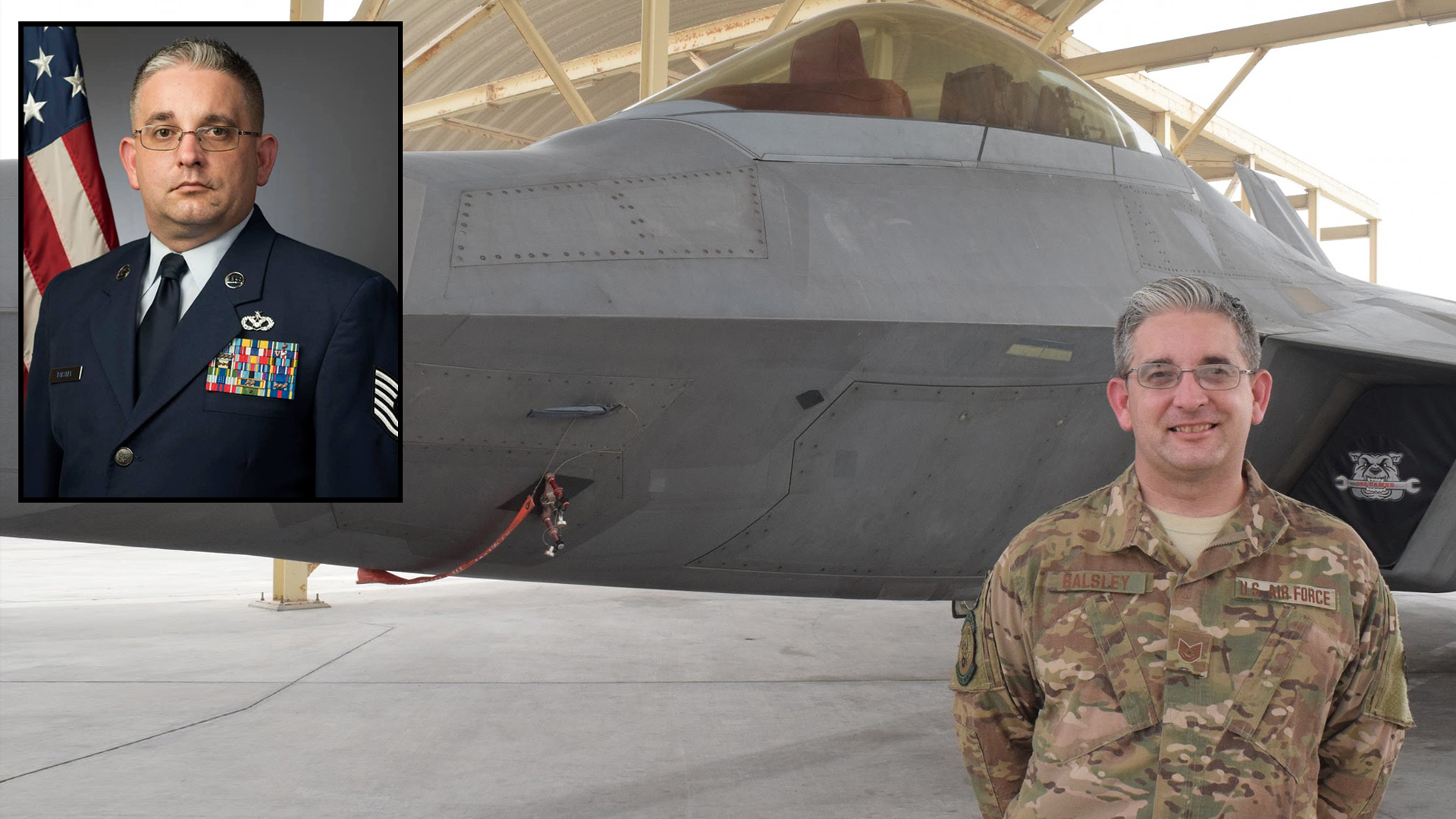Helping veterans overcome the invisible wounds of war: How a military career led to a new calling in social work


Helping Veterans Overcome the Invisible Wounds of War: How a Military Career Led to a New Calling in Social Work
After 20 years in the Air Force, 10 different deployments, and innumerable boot prints all across the Middle East, Mike Balsley ‘21 was about to retire from the military.
During his last deployment, he was over 7,000 miles and nine time zones away when he received a call that would crystalize his next plan to pursue social work at Miami University. He remembers it clearly.
“Here I was on a satellite phone talking with Dr. [Anne] Roma,” Balsley says, “She was taking time to answer all my questions, in the middle of the night, at odd hours for her, to get me the information I needed. She demonstrated the kind of program leadership that I respected and felt I could thrive under.”
Answering the call
But even before this particular long-distance call, Balsley had already begun following an even higher calling to help others. “I’ve always said that social work chose me,” he says. “I’ve always had an interest in human behavior, and my life experiences directed me to this arena.”
In the Air Force, Balsley was a civil engineer. He worked on electrical generators and aircraft landing systems. He also gained first-hand experience learning how to cope with the stressors of military life, and he began helping a few enlisted friends and colleagues do the same.
Today, he’s finishing his degree at Miami and interning at the Dayton Department of Veteran Affairs (VA), where he assists with psychological consults and group therapy sessions. It’s also where he’s now drawing on his past experiences to help fellow veterans fight new battles, internal battles.
“We have our own trauma bonds that make it difficult to relate to people who haven't experienced combat,” Balsley explains. “So when I introduce myself, I’ll say, ‘Hi, I’m a social work student. But I was also in the Air Force for 20 years. I know it's tough. I’ve been there. I’ve experienced similar situations that keep me up at night, that make me question why I’m still here and the person [who was] next to me is not.’”
While his military experience allows Balsley to quickly empathize and connect with veterans, the overall assessment, support, reassurance, and guidance he offers are skills that all social workers are trained to provide.
Those seeking VA services often suffer from PTSD, substance abuse, addiction, withdrawal, or suicidal ideation. Some wish to detox from alcohol. Others need coping skills to manage anger, alleviate depression, rebuild trust, or find forgiveness.
Many of these complex and pervasive mental health issues are often called war’s “invisible wounds,” and they are commonly associated with those who serve. However, another perhaps less obvious fact of military life is the struggle that entire families must also endure back home.
A need for family support
“One of the stressors that might be overlooked is the transition that happens with families when the service member gets deployed,” Balsley says.
Military families often live deeply out of sync, and missed holidays, birthdays, and anniversaries are only the beginning. Interpersonal dynamics also change. Compromises are made. New routines are established. Many spouses also assume dual parenting roles and extra responsibilities, and all while wrestling with the added anxiety over the unforeseen and life-threatening dangers their partners may face.
This can result in a cascade of relationship problems, as well as tremendous mental strain. Having a strong spouse is key for longevity in the military, Balsley says, and it creates a need for balance that must be maintained during deployment and after retirement.
“Because when the service member returns, spouses have to relinquish the assumed roles they picked up when the service member left,” he says. “So there can be a lot of friction, a lot of power struggles. There's a lot of reintegration that has to happen, and that's not always easy.”
Social workers can help people navigate these circumstances, which is part of Balsley’s future plans as well.
“I would love to bridge my experience with the VA and engage with families,” he says. “My ambition is to eventually get into a marriage and family therapy environment, to help struggling couples recover their marriages, and prevent divorces that will ultimately affect the rest of their lives and their children.”
That’s the next step for Balsley as he looks toward his next transition -- thankful to have answered the call that put him on this new career path.
“I’ve had a laundry list of jobs and a lot of different experiences,” he says. “I’ve been through several leadership positions. I’ve been under effective leaders and ineffective leaders. And there's one thing I can say about Miami's social work professors. Every single one has a passion for making students successful.”
“They go above and beyond,” he says. “Just like Dr. Roma did when she took time to reach out when I was literally on the other side of the world.”

